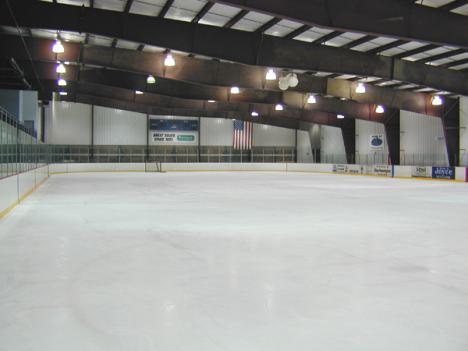Of all the evils in the world, greed is the worst. It has destroyed people, torn families, but worst of all, it has ended the NHL. Well, for this year at least.
The National Hockey League has been interested in instituting a salary cap for the teams in the league, some of which are Canadian. The union of teams has been adamantly against such a measure, and has “remained united in its stance, even if it means the loss of an entire season or more,” Trevor Linden of the Vancouver Canucks said last week after a meeting with the league’s head honchos.
The season, which consists of 688 regular season games plus the All-Star Game has been going on for over 100 days, without a single game played. The many players not being able to play here in the States have decided to head to Europe, where they received honorable welcomes from countries like Russia and Slovakia where hockey is huge.
So far, the meetings between the Union and the League have merely been the same rehash, with both sides bickering over money. The League wants a salary cap, the teams don’t. The League offered half of its total $2 billion revenue to return to the teams, but they want more. Despite the Union’s staunch defense of its stand on salary caps, something must be done.
It’s hard to imagine the harsh life one would lead when paid an average of $1.3 million a year. Yet that is just what the League is proposing to pay its players, on average. Hockey might be one the most physically demanding sports, but that doesn’t justify a salary of over $2 million.
The NFL has proven the effectiveness of a salary cap, yet the players aren’t convinced. And in a sport where 20 out of the 30 clubs lost money in the last season, something definitive needs to be done. The solution increasingly seems to be farther and farther away, as the weekly talks end with nothing done. With the end of the Jan. 27 talks in New York City, no future talks are scheduled according to NHL.com.
The only other option available to those starving for hockey is either the Canadian Hockey League, or college hockey, yet neither has found a spot on TV. With all these problems in the League, there seems to be no end in sight and no professional future for those college players across the nation looking to become a professional athlete in the sport they love.
Hockey, as most people in the Northeast see it, isn’t about the money, the rivalries, or the ticket prices. Hockey is about the teams, the love of the game. It’s about looking forward to winter, to the frozen lakes and ponds where locals play for fun, the rinks across my home state gearing up for high school hockey.
I grew up watching Paul Kariya play for University of Maine Black Bears, I’ve been to the crazy rivalry games between UMaine and UNH, and I’ve watched our high school Red Riots maintain a near fifteen year dominance only to lose it my senior year to Greeley. It’s sickening to see that such a great sport has been humbled by greed.
Yes, the players do need to be compensated for their ability, but there shouldn’t be a problem with salary caps. The teams just need to get their heads out from the snow, realize they are losing money, and get something going. The owners are at fault too, they need to stop looking at it from behind the dollar bill, and start to see the love of the fans a little more. But from where I am, it doesn’t look like either will do what it takes to save a most likely unsalvageable season.

